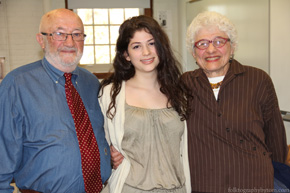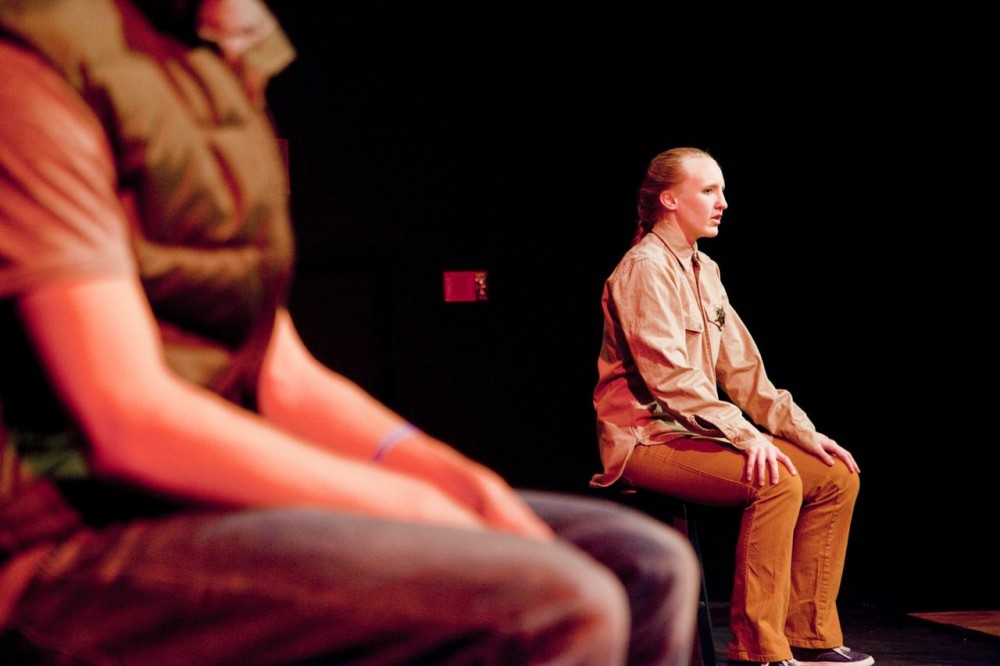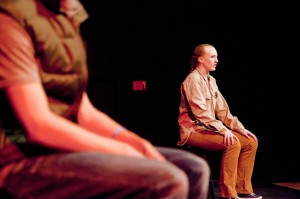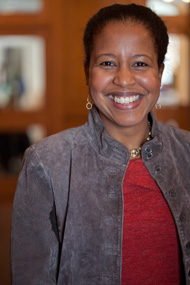
Three days after his seventh birthday, Manny Stern, and the last remnants of Antwerp’s Jewish community, caught the last train out of Belgium. It was May 1940 and German troops were encroaching on the Low Countries and northern France. During the Holocaust, between 1939 and 1945, the Nazis systematically murdered over 6 million people as their forces conquered Europe, Russia, and parts of North Africa.
Mr. Stern met his wife, Ritta, at a square dance at City College in Manhattan, she was 18 and he was 21. They’ve been married for 58 years.
However, it wasn’t until four or five years ago that Mr. and Mrs. Stern, grandparents of Eva Stern-Rodriguez ’13, decided to start telling their stories of survival during the Holocaust. On April 16 the Sterns visited Assistant Head of School and history and global studies teacher Glenn Swanson’s Hitler and Nazi Germany class to tell these stories.
Below are the stories retold by Mr. and Mrs. Stern, on April 16, 2013, with occasional editing for readability.
Manny Stern
Until a number of years ago I never talked about my experiences, I wasn’t particularly interested, I didn’t attend conferences and conventions and meetings, I didn’t get newsletters, I didn’t care about it.
About five years ago, we had a guest speaker at our synagogue and he was the former Israeli Ambassador to Belgium. He started his talk by saying, ‘My story begins on May 12, 1940 in Antwerp, Belgium when my family and I took the last train out of Belgium that was allowed to leave.’ Then he went on to tell a story that left me very disturbed because it was a parallel story to that of my family. At the end of his talk he asked for questions and I said, ‘Mr. Ambassador, I was on that train.’ Continue reading




 The Williston Theatre’s spring production this year is The Laramie Project, a play by Moisés Kaufman and members of the Tectonic Theater Project that was based on a small town’s reaction to the 1998 murder of Matthew Shephard, a University of Wyoming student. During a recent break between rehearsals, Emily Ditkovski, the director of the Williston production, and Persis Ticknor-Swanson ’14, a cast member, sat down to talk about preparing for the play, audience empowerment, and bullying.
The Williston Theatre’s spring production this year is The Laramie Project, a play by Moisés Kaufman and members of the Tectonic Theater Project that was based on a small town’s reaction to the 1998 murder of Matthew Shephard, a University of Wyoming student. During a recent break between rehearsals, Emily Ditkovski, the director of the Williston production, and Persis Ticknor-Swanson ’14, a cast member, sat down to talk about preparing for the play, audience empowerment, and bullying.
